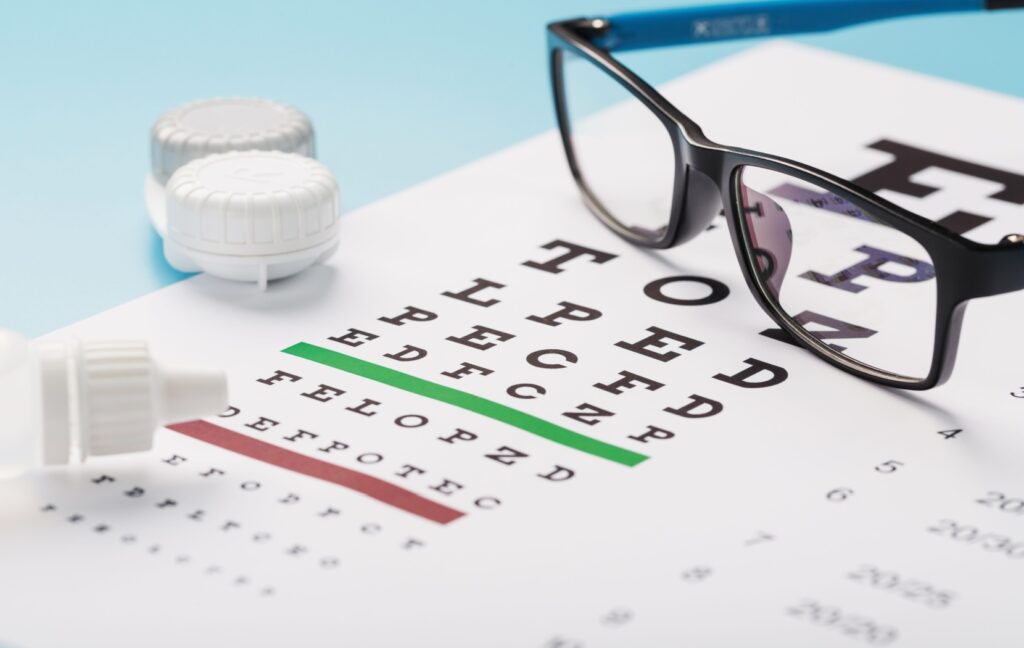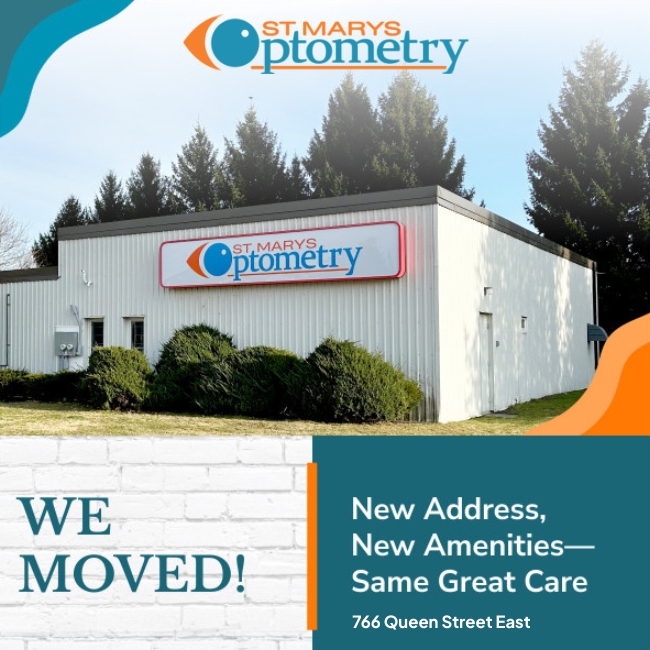You’ve just returned from an eye exam, and your optometrist mentioned you have 20/30 vision. But what does that mean? And more importantly, do you need glasses?
Not everyone with 20/30 vision needs eyeglasses. However, people with 20/30 vision may need glasses if they’ve been struggling with tasks that require sharp distance vision like driving, if they experience frequent eyestrain, or if their optometrist recommends that they wear eyeglasses.
What Does 20/30 Vision Mean?
When you hear “20/30 vision,” it’s referring to the Snellen eye chart used in eye exams. Visual acuity, or clarity of vision, is measured by comparing your eyesight to typical “normal” vision.
If you have 20/20 or “normal” vision, you can see an object at 20 feet away with the same clarity that a person with normal vision would see at 20 feet.
However, if you have 20/30 vision, it means you need to be 20 feet away from an object to see it clearly, whereas someone with 20/20 vision can see that same object clearly from 30 feet away.
Put simply, 20/30 vision is slightly less sharp than 20/20 but is still considered within the range of “functional” vision.
Is 20/30 Vision Normal?
20/30 vision is considered relatively close to normal. It’s not perfect, but it doesn’t fall into the category of “low vision,” which typically refers to anything worse than 20/70 even with corrective lenses. Many people with 20/30 vision might not experience any noticeable symptoms or difficulties in their daily lives.
However, slight differences in how you perceive visual details can still impact certain tasks, like reading small text or driving at night. Depending on your age, lifestyle, and activities, 20/30 vision may warrant corrective measures.
Should I Get Glasses for 20/30 Vision?
Whether or not you need glasses with 20/30 vision depends on several factors, including your comfort, lifestyle, and specific symptoms. Below are some reasons someone with 20/30 vision might benefit from glasses.
1. You Struggle with Specific Tasks
Glasses may be helpful if you notice difficulty or discomfort performing certain activities, like:
- Reading: If small prints or digital screens appear blurred.
- Driving: Especially at night when lower light conditions can exacerbate vision clarity issues.
- Work-related tasks: Precision work or long hours of computer use.
- Tasks at school: Seeing the whiteboard clearly, concentrating on learning and taking notes.
2. You Experience Eye Strain
Living with 20/30 vision might not seem problematic until you notice symptoms like eye strain or headaches. Prolonged focus on screens or detailed tasks might push your eyes to their limits, leading to discomfort. Glasses tailored for these circumstances could provide relief.
3. You Want Clearer Vision
While 20/30 is far from a severe visual impairment, many people prefer the crispness corrective lenses offer. If you want sharper vision for convenience or aesthetics, glasses can help.
4. Your Optometrist Recommends It
Your eye doctor will consider factors like overall eye health and daily visual demands before making a recommendation. If they prescribe glasses, it’s often for preventative or practical reasons—to help reduce stress on your eyes and maintain better long-term vision.
Can I Avoid Glasses With 20/30 Vision?
There are also scenarios where glasses may not be necessary:
- If you don’t experience symptoms like eye strain, blurred vision, or difficulty with specific tasks.
- If your lifestyle does not require high-precision visual sharpness.
Always consult your optometrist to discuss your unique needs, but know that many people function comfortably without glasses even with 20/30 vision.
Tips for Managing 20/30 Vision Without Glasses
If your optometrist determines you don’t need glasses (or you choose not to wear them), here are a few proactive steps to maintain optimal eye health and visual comfort:
- Practice the 20-20-20 rule. When using screens, every 20 minutes, look away at something 20 feet away for 20 seconds to reduce eye strain.
- Use proper lighting. Minimizing glare and ensuring adequate lighting when reading or working reduces the strain on your eyes.
- Get regular eye exams. Your vision can change over time, so schedule regular check-ups to reassess your needs.
- Stay hydrated and blink often. This keeps your eyes moist and prevents dryness, which can exacerbate strain.
- Eat healthy and incorporate foods rich in omega-3s and vitamins A, C, and E to promote overall eye wellbeing.
Do I Have Options Other Than Glasses?
If glasses aren’t appealing, you might wonder about other options like contact lenses or LASIK surgery. However, these are not usually necessary for 20/30 vision unless there are other complicating factors or a strong personal preference. LASIK surgery often targets more significant refractive errors, so it’s rarely recommended for mild concerns like 20/30 vision.
Get Back to Clear Vision
Having 20/30 vision isn’t bad—it falls close to the “normal” range. Whether or not you need glasses largely depends on how your vision impacts your daily comfort and activities.
At St Marys Optometry, we’re here to help you get the best out of your vision. Schedule your next eye exam with us today.





